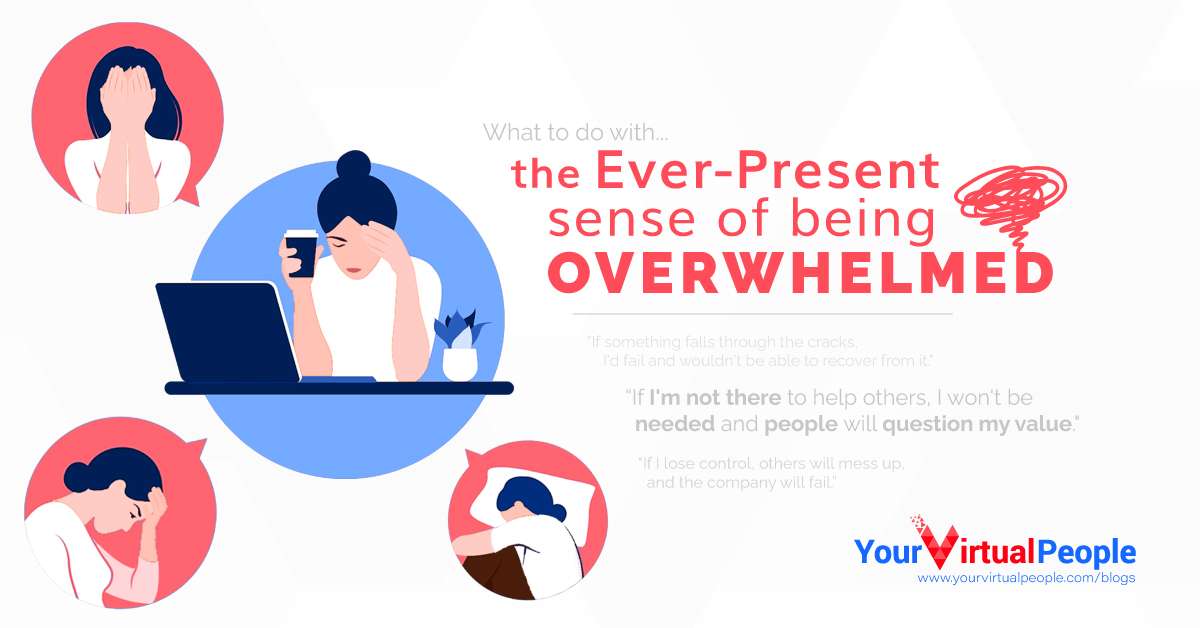Summary:
The cognitive implications of feeling continuously overloaded or being overwhelmed might range from sluggardly, memory problems, uncertainty, trouble concentrating or thinking rationally, to a racing mind or decreased problem-solving skills. When we put too many demands on our thinking over a long period of time, we might develop cognitive fatigue, making us more susceptible to distractions and our thinking less nimble. Any of these impacts, by themselves, can reduce our effectiveness and leave us feeling even more overwhelmed. If you are frequently feeling overwhelmed, the author suggests these ways to try.
Our professional lives have grown progressively demanding, providing us with increasingly complicated difficulties at an almost constant pace. When you include personal or family obligations, One can easily feel overwhelmed
The book Immunity to Change tells us how the increase in complexity associated with modern life has left many of us feeling “over our heads.” When this occurs, the complexity of our world has surpassed our “complexity of mind,” or our ability to handle that level of complexity and be effective. This has little to do with our intelligence, but rather with how we perceive and act in the environment.
We typically respond to increasing workloads by working harder and longer hours, rather than taking a step back and examining why we do this, and devising a new method of operating. Some of the people had already resorted to getting up at 6:00 a.m. to complete their work. Most of us do not have this degree of responsibility.
Learn what triggers your feelings of being overwhelmed.
Ask yourself, “What one or two items, if taken off my plate, would relieve 80% of the tension that I am experiencing right now?” “While you may still be accountable for these tasks and cannot remove them from your plate, this question might help you discover a major cause of stress.” Complete a sizable task that has made significant progress. Alternatively, if the sheer magnitude of the work or project is overwhelming you, divide it into more manageable components, request extra resources, or renegotiate the deadline if possible – or all of the above:
Set time and workload constraints.
This might involve “time boxing” the hours you spend on a task or project, leaving the workplace by a specified time, or declining certain sorts of work. We often waste a lot of time mediating disagreements among team members. This habit also promotes bad practices of escalating issues that can lead to failure to make any headway. Saying “no” to these types of escalations and establishing expectations to exhaust all other avenues of problem-solving before approaching your superiors, provides more breathing room to focus on goals with fewer distractions.
Delegate or outsource.
“What is the greatest and best use of my time?”, a question you need to ask yourself.
“Activities that do not come within the scope of your response can be taught and/or assigned to others.” This might involve managing specific tasks, delegating attendance at certain meetings, having a team member conduct preliminary interviews for an available position, or outsourcing housekeeping and food preparation.
Examine your preconceptions.
If you are always feeling overwhelmed, it is possible that you have assumptions that are keeping you engaged in ineffective activities. These are referred to as “Big Assumptions” by Kegan and Lahey, it was the belief for some that
“If something falls through the cracks, I’d fail and wouldn’t be able to recover from it.”, “If I’m not there to help others, I won’t be needed and people will question my value.”, “If I lose control, others will mess up, and the company will fail?”
While we all feel overwhelmed at times in our demanding professional and personal lives, using the tactics outlined above can help reduce the frequency and amount to which we feel this way.
Our work lives have become increasingly demanding, which results to complex challenges at an almost continual rate. It’s easy to feel overwhelmed when you include personal or family duties. In their book, Immunity to Change, Harvard professors Robert Kegan and Lisa Lahey discuss how the increase in complexity associated with modern life has left many of us feeling “over our heads.” When this occurs, the complexity of our world has surpassed our “complexity of mind,” or our ability to handle that level of complexity and be effective. This has less to do with intellect and much to do with how we perceive and respond to our surroundings.

